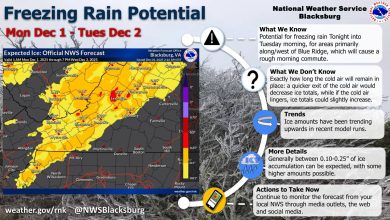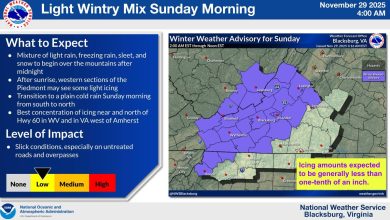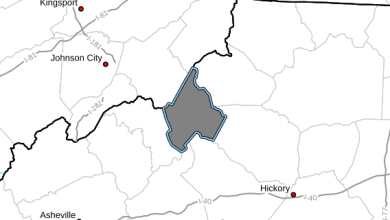Last Updated on January 13, 2015 12:32 pm
N.C. Department of Transportation crews are prepared as the latest round of winter weather, this time in the form of freezing rain, moves into the region.
The National Weather Service says potentially hazardous weather is possible over the next few days for most of western North Carolina and the Foothills. Motorists in the High County could see freezing rain today and Wednesday, while motorists in other parts of western North Carolina, including Hickory, Asheville and Sylva, could see similar weather move in early Wednesday.
NCDOT has the necessary crews and supplies needed to respond to this winter storm and is prepared should the weather change. NCDOT remains in close contact with the NWS to monitor the forecast and change response plans, if necessary.
If you must travel during adverse winter weather, here are a few safety tips:
- Bridges, elevated roadways and overpasses accumulate ice first. Approach them with extreme caution and do not apply your brakes while on the bridge;
- Clear windows and mirrors;
- Reduce speed and leave plenty of room between you and other vehicles;
- If you begin to slide, take your foot off the gas and turn the steering wheel in the direction of the slide. Do not apply the brakes as that will cause further loss of control of the car;
- If you have a cellular phone, take it with you. You can contact the Highway Patrol statewide by calling HP (*47) or call the county emergency center by dialing 911; and
- Come to a complete stop or yield the right of way when approaching an intersection where traffic lights are out. Treat this scenario as a four-way stop.
Another concern during winter weather is black ice. It's not uncommon for a road to be clear of snow but still have a patch of black ice. NCDOT crews do their best to treat areas prone to black ice, but drivers can be proactive by slowing down and increasing their following distance.
NCDOT typically doesn't pre-treat roads with brine when a winter storm moves in as rain. This is because the rain dilutes the solution of salt and water and rinses it off the roadway, making it ineffective.


















